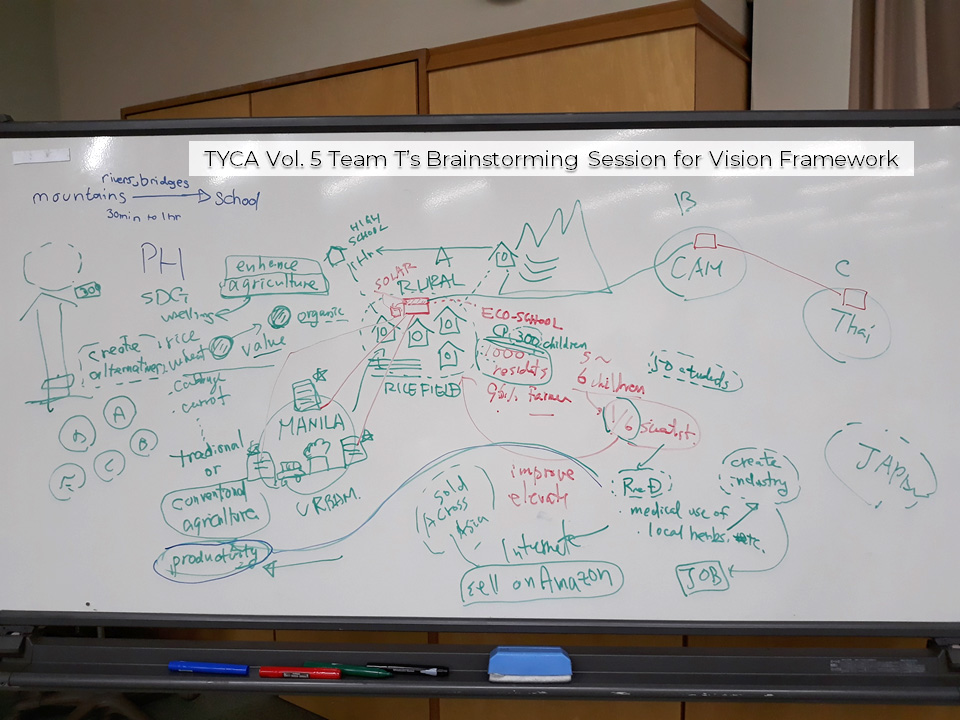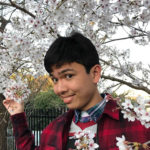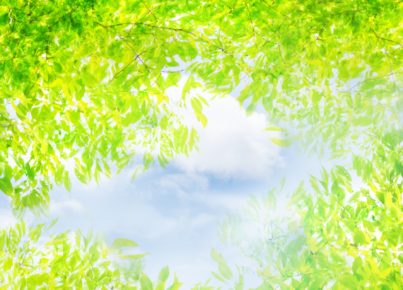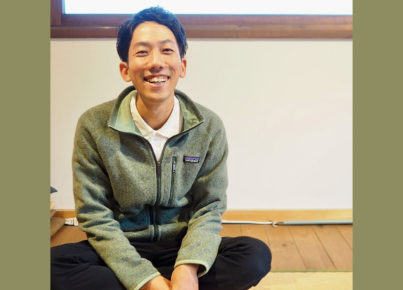“Lessons after TYCA for a Better World”
Bertrand Michael L. Diola
University student (BS Agricultural and Biosystems Engineering)
Philippines
Introduction
Quarantined at homes away from the warmth of people. Unceasing floods ravaging everything along its path. Crossing mountains to maintain education. These are some situations we currently face in the Philippines. They could be addressed through the lessons we learned from the Toshiba Youth Club Asia (TYCA) program which helped us Asian youths envision a better future for the world. I will discuss how their three main ideas on sustainability, diversity, and collaboration applied to my perspective on future societies.
Sustainability
A main issue we tackled in the TYCA is on sustainability. Our world has limited resources. With this, we should have a stewardship mindset on these gifts. We take what we need, but we make them grow and pass them on. We must balance investing in both future and present needs.
I am currently a university freshman under the Agricultural and Biosystems Engineering degree program which aims to increase agricultural efficiency while ensuring environmental sustainability. In my crop science course, I am amazed to learn how the indigenous people in my country are good stewards of their lands. They already have soil and water conservation practices to mitigate climatic stresses such as soil erosion. In the mountains for example, they have their own cropping systems, structures made from local resources, and forest management strategies which lessen the effects of climate change. They also limit their resource harvesting such as forest wood to protect the environment. Aside from their own established science, they connect these lands with their culture. They are efficient in taking care of their lands since they feel socially responsible for these passed down gifts.
Despite their efforts, sometimes we feel powerless. Climate change is here. Our country is still battling the pandemic, the students are grappling with continuing education, and we have been recently hit by successive and stronger typhoons in just a month. Normally undisturbed provinces have flooded up to waist or neck levels or even submerged houses, bringing power and water interruptions. Some culprits identified were the deforestation of mountains that act as natural barriers and poor drainage systems clogged by improper waste management. There are also international factors such as the industry practices of burning fossil fuels or increased greenhouse gas production which further aggravate climate change and produce these typhoons.
As for the pandemic itself, COVID-19 has gravely affected my country economically and socially. The financial restrictions for most people forced them to adopt sustainable practices and reassess what is essential. Home gardening became popular for food self-sufficiency as well as for relaxation. With the constant fears and gloom in a world fixated on productivity, mental health has also been a big issue. We need to be sustainable in our practices to move in society. We should nourish our souls by caring for all dimensions of our wellness. Take breaks. Eat, sleep, and exercise well. Engage in hobbies you enjoy. Connect with friends and family. Rediscover your drive and why you began.
Diversity
Diversity is another lesson from the program. We are not so different after all. In my last years in high school, we had to pick two science specialization courses. There was a notion that students either select Biology since they dislike mathematics, or they choose Physics since memorization is difficult. Taking both courses would be laughable since they are complete opposites and would never intersect. At my current university program however, I saw the importance of both fields for the interdisciplinary nature of agriculture. All branches of sciences are governed by the same laws. There are only arbitrary divisions. We need innovation from these various perspectives in solving our ever-changing problems.
The same analogy applies to people. Just after TYCA, I got to join various research competitions around the world and in my country. I got to visit Indonesia whose people and environment felt like just another region in the Philippines. I also travelled to New York whose melting pot of races felt like the diverse cultures found in my archipelagic country. Wherever I went, I saw how all research projects across different disciplines aimed to create a better world by maximizing their available local resources.
My peers in TYCA as well as the presentation of our group visions inspired me to make an impact and get to know my community. I, along with my friends, established Mitsa, which is a Filipino term for a wick and symbolizes spreading knowledge and skills like fire. It is a service organization that helps teach math and science to elementary students, so that they could enter science high schools. Our Social Science subject also pushed us to immerse in less fortunate communities. My group for this project helped our beneficiaries with their academics as well as taught recreational activities such as dance, music, and arts to expose them to various skills and opportunities in life. Each person we encountered felt like family.
Each one of us also has an important role in building our future societies. This global pandemic highlighted the importance of medical experts as well as everyday people in our society such as janitors, guards, food personnel, and more in keeping our society intact. No matter how humble the job, we all have skills to offer. Let our various passions shape the world together. Let there be unity in our diversity.
Collaboration
From my social science courses, I learned that our national hero Jose Rizal hinted on the recreation of a Southeast Asian identity. One theory on the origins of our people state that we once shared a common ancestry – the Austronesians. Before European colonial times, we had similar cultures across islands and countries. We were also highly active in commerce and trade. Unfortunately, these connections were severed during colonial eras. Rizal wanted to reestablish our shared Malayan race experiences. Now, globalization heightens our chances to reconnect.
Yes, globalization and interconnectivity may bring risks such as the current pandemic which hamper daily activities and societal functions. But history shows that time and time again, mankind develops new technologies and solutions for every era. Our contemporary technology further boosts communication we never thought was possible. The internet brought virtual international conferences. Families separated around the world and through provinces could reunite. Social media allowed ordinary people to share their voice to the world. In my case, when I joined a virtual theater workshop this pandemic, we had participants coming as far as from provinces in the Southern Philippines. Normally, these lessons would have only been confined within Manila, the capital of the Philippines. From these examples, transfer of ideas, cultures, shared experiences, and sentiments are now much easier.
Conclusion
Once again, globalization may bring the transnational problems of limited resources, climate change, and the pandemic. Hence, we need to further discover smarter technologies and creative solutions for these new problems. For example, with the declining age of Asian farmers, we need to make the agricultural sector appealing for fresh new minds. We could utilize the present fourth industrial revolution technologies such as artificial intelligence, machine learning, sensors, and smart devices. Through collaboration of these ideas, innovation begins. What can you offer to the world, no matter how small? We need everyone to make these changes happen. We need you.
序章
人の温もりから離され、家に隔離されました。 絶え間なく続く洪水は、その道のすべてを荒廃させました。教育を維持するために山を越えます。現在フィリピンでは、このようなことに直面している状況です。こうした状況は、私たちアジアの若者が世界に向けてより良い未来を描くための支援を行った東芝ユースクラブアジア(TYCA)のプログラムから学んだことで解決することができます。持続可能性、多様性、協調性の3つの考え方が、私の考える未来の社会についての考え方にどのように当てはまるのか、お話ししたいと思います。
持続可能性
TYCAで取り組んだ主な課題は、持続可能性についてです。私たちの世界の資源は限られています。だからこそ、私たちはこれらの贈り物に対して管理責任があるという考え方を持つべきだと思います。私たちは必要なものを手に入れますが、それを成長させ、引き継いでいくのです。私たちは、将来と現在のニーズの両方にバランスよく投資しなければなりません。
私は現在、環境の持続可能性を確保しながら農業の効率性を高めることを目的とした農業・バイオシステム工学の学位プログラムに所属している大学1年生です。作物科学の授業では、私の国の先住民がいかに自分たちの土地をよく管理しているかを学び、驚きました。先住民はすでに土壌浸食などの気候によって与えられる影響を軽減するために、土壌と水の保全をしています。例えば山間部では、気候変動の影響を軽減するために、独自の作物栽培システムや地域の資源を利用した仕組み、そして森林管理戦略をを持っています。また、環境保護のために森林の木材などの資源の収穫を制限しています。独自に確立された技術とは別に、先住民は土地と彼らの文化を結びつけています。先住民は受け継がれてきた贈り物に社会的責任を感じているので、土地の手入れを効率的に行っています。
先住民の努力にもかかわらず、私たちは時に無力さを感じることがあります。気候変動が起こっています。私たちの国はまだパンデミックと戦っており、学生たちは学び続けるために格闘しています。また、最近ではわずか1ヶ月の間に連続してより強い台風に襲われました。普段は平穏な地域でも、腰や首の高さまで浸水したり、家が水没したりして、電力や水の供給が途絶えたりもしています。特定されたいくつかの原因は、天然の防壁として機能する山々の森林伐採や、不適切な廃棄物の管理によって詰まった脆弱な排水システムでした。また、国際的な要因もあります。それは、化石燃料を燃やす産業慣行や温室効果ガスの増加などです。このようなことは、気候変動をさらに悪化させ、台風を発生させるのです。
パンデミックそのものに関しては、COVID-19は経済的にも社会的にも私の国に深刻な影響を与えました。経済的な制約により、多くの人々は持続可能な方法を取り入れたり、必要なものを見直したりすることを余儀なくされました。家庭菜園は食料自給と息抜きのために
広く普及しました。生産性に固執した世界では、絶え間ない恐怖と陰鬱さがあり、精神の健康も大きな問題となっています。私たちが社会の中で活動していくためには、持続可能な習慣を身につける必要があります。私たちは、どの角度からも健康であるということに気を付けながら、魂に栄養を与えなければなりません。休息を取り、よく食べ、よく眠り、よく運動をしましょう。趣味を楽しみましょう。友人や家族と交流しましょう。自分の原動力と、生まれた意義を再発見しましょう。
多様性
多様性はTYCAで得たもう一つの教訓です。結局、私たちはそんなに違いがあるわけではないのです。私の高校最後の年には、理系の専門科目を2つ選ぶことになりました。数学が嫌いだから生物を選ぶか、或いは、暗記が難しいから物理を選ぶかという考え方がありました。両方を学ぶ、ということは馬鹿げたことです。なぜなら両者は全くの正反対で、決して交わることがないからです。しかし、現在の大学では、農業自体が多くの学問分野にまたがるということから、この二つの分野の重要性を感じました。科学のすべての分野は同じ法則に支配されています。そこには恣意的な区分しかありません。刻々と変化する問題を解決するためには、このような様々な視点からの改革が必要です。
人間にも同じような例えがあります。TYCAの直後、私は世界中の、そして私の国の様々な研究大会に参加することができました。インドネシアを訪ねた時、人々や環境がフィリピンのある地域と似ているように思えました。また、人種のるつぼであるニューヨークにも行きました。そこでは、私の国の群島にあるような多様な文化が存在しているように感じました。どこに行っても、さまざまな分野の研究プロジェクトが、その地域の資源を最大限に活用して、より良い世界を創造しようとしているのを目の当たりにしました。
TYCAの仲間たちや、グループの考えを発表したことは、影響を与え、自分の地域社会を知ることに対しての原動力となりました。私は友人と一緒にMitsaを設立しました。Mitsaはフィリピン語で「芯」を意味し、火のように知識や技術を広めることを象徴しています。Mitsaは小学生に数学と科学を教え、理系の高校に進学できるように支援する奉仕団体です。社会科学の科目はまた、私たちが恵まれていないコミュニティに関わることを後押ししてくれました。このプロジェクトに参加した私のグループは、受益者の学業を支援するだけでなく、ダンス、音楽、芸術などのレクリエーション活動を教え、様々なスキルや人生における機会を与えることができました。私たちが出会った人たちは皆、家族のように感じました。
私たち一人一人が、未来の社会を築いていく上で重要な役割を担っているのです。今回の世界的な大流行は、医療の専門家だけでなく、用務員、警備員、食品担当者など、私たちの社会を維持するために働く人たちの重要性を浮き彫りにしました。どんなに地味な仕事であっても、私たちはみんなスキルを持っています。情熱を持って、一緒に世界を作っていきましょう。多様性の中に統一性があるように。
協調性
私は社会科学の授業で、国民的英雄ホセ・リザールが東南アジアのアイデンティティの再構築をほのめかしたことを知りました。私たちの民族の起源に関する一説によると、かつてオーストロネシア人が共通の祖先だったそうです。ヨーロッパの植民地時代以前は、島々や国を越えて似たような文化がありました。また、商業や貿易にも積極的に取り組んでいました。しかし、残念ながら、このつながりは植民地時代に断絶してしまいました。リザールは、私たちが共有してきたマレー人種の経験を再構築したいと考えていました。今、グローバル化は、私たちが再びつながる機会を高めています。
確かに、グローバル化とお互いがつながっているという状態は、現在のパンデミックが、日々の活動や社会機能を阻害しているように、リスクをもたらすかもしれません。しかし歴史は、人類が時代に応じて新しい技術や解決策を開発してきたことを示しています。私たちの現代技術は、私たちが考えたこともないようなコミュニケーションをさらに後押ししています。インターネットはオンラインでの国際会議を可能にしました。世界中で、離れていた家族が再会することができました。ソーシャルメディアは、一般の人々が世界に向けて自分の声を発信することを可能にしました。私の場合今回のパンデミック下で、バーチャルシアターのワークショップに参加しました。その際、フィリピン南部の地方からも参加者が来ていました。通常であれば、首都マニラの中だけでの授業になってしまいますが、今回のワークショップでは、フィリピン南部の地方からも参加者が集まってくれました。これらの事例から、アイデア、文化、経験、感情の共有が容易になりました。
おわりに
再度になりますが、グローバル化は、資源の枯渇、気候変動、パンデミックといった国境を越えた問題を可能性があります。故に、新たな問題に対処するために、より進んだ技術と創造的な解決策の発見が必要です。例えば、アジアの農業従事者の高齢化が進む中で、農業分野を新しい発想で魅力的なものにしていく必要があります。そのために、人工知能、機械学習、センサー、スマートデバイスなど、現在の第4次産業革命の技術を活用することが考えられます。これらのアイデアが協同することで、技術革新が始まります。どんなに小さくても、あなたは世界に何を提供できるでしょうか。これらの変化を実現するためには、みんなの力が必要です。私たちはあなたを必要としています。








